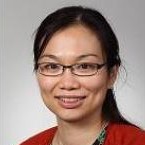About the workshop
In continual learning, models can continually accumulate knowledge over time without the need to retrain from scratch, with particular methods aimed to alleviate forgetting. It can continually learn from a stream of experiential data, building on what was learnt previously, while being able to reapply, adapt and generalize to new situations. This is particularly important when there are changes in the data streams. Current predictive models need to be adapted to these changes (drifts) as soon as possible while maintaining good performance measures (e.g. accuracy, time, delay, energy efficiency).
The aim of this workshop is to bring together researchers from the areas of continual learning, model adaptation and concept drift in order to encourage discussions and new collaborations on solving the problems in this domain. We like to encourage state-of-the art research in the area of continual learning, model adaptation and concept drift. Beyond that we encourage research that demonstrates the applicability of these research in various areas including (but not limited to) earth and environmental science, sensor networks and transportation network. We encourage the submissions of research that incorporates the fundamentals of green AI. Therefore, this workshop encourages submissions that attempts to address any of these issues.
This workshop will provide a forum for international researchers and practitioners to share and discuss their original and interesting work on addressing new challenges and research issues in the area.
The topics of interest of this workshop include (but not limited to) the following:
- New data-level and algorithm-level approaches in non-stationary environments for continual learning, model adaptation and concept drift.
- Adaptive ensemble approaches for data streams.
- Passive and active approaches to dealing with concept drift.
- Approaches to dealing with recurring concepts.
- Semi-supervised learning and active learning approaches.
- Explainable AI (XAI) approaches for drift explanation.
- Performance evaluation in incremental and online learning scenarios.
- Case studies and real-world applications.
- Green AI for data streams.
Workshop Program
Workshop Program (Session B4)
This year, ICDM is held online. The paper presentations will be in the form of recorded videos, which will be made available to the conference attendees before the conference, on the online platform. On the day of the workshop, each main author is invited to give a short live introduction of his paper and to respond to the questions of the attendees.| 5 mins |
Opening |
Mykola Pechenizkiy |
|---|---|---|
| 2 + 5 mins |
An unsupervised methodology for online drift detection in multivariate industrial datasets |
Sarah Klein and Mathias Verbeke |
| 2 + 5 mins |
Restructuring of Hoeffding Trees for Trapezoidal Data Streams |
Christian Schreckenberger, Tim Glockner, Christian Bartelt, and Heiner Stuckenschmidt |
| 2 + 5 mins |
MIR_MAD: An Efficient and On-line Approach for Anomaly Detection in Dynamic Data Stream |
Chang How Tan, Vincent CS Lee, and Mahsa Salehi |
| 2 + 5 mins |
TEDD: Robust Detection of Unstable Temporal Features |
Ricardo Pereira, Bruno Laraña, Nádia Soares, and Miguel Araújo |
| 2 + 5 mins |
LbR: A New Regression Architecture for Automated Feature Engineering |
Meng Wang, Zhijun Ding, and Meiqin Pan |
| 2 + 5 mins |
Pelican: Continual Adaptation for Phishing Detection |
Wernsen Wong and Gillian Dobbie |
| 2 + 5 mins | Learning Student Interest Trajectory for MOOC Thread Recommendation |
Shalini Pandey, Andrew Lan, George Karypis, and Jaideep Srivastava |
Accepted Papers
- Ricardo Pereira, Bruno Laraña, Nádia Soares, and Miguel Araújo, "TEDD: Robust Detection of Unstable Temporal Features"
- Sarah Klein and Mathias Verbeke, "An unsupervised methodology for online drift detection in multivariate industrial datasets"
- Christian Schreckenberger, Tim Glockner, Christian Bartelt, and Heiner Stuckenschmidt, "Restructuring of Hoeffding Trees for Trapezoidal Data Streams"
- Wernsen Wong and Gillian Dobbie, "Pelican: Continual Adaptation for Phishing Detection"
- Meng Wang, Zhijun Ding, and Meiqin Pan, "LbR: A New Regression Architecture for Automated Feature Engineering"
- Chang How Tan, Vincent CS Lee, and Mahsa Salehi, "MIR_MAD: An Efficient and On-line Approach for Anomaly Detection in Dynamic Data Stream"
- Shalini Pandey, Andrew Lan, George Karypis, and Jaideep Srivastava "Learning Student Interest Trajectory for MOOC Thread Recommendation"
Submission
Submission
Paper submissions should be limited to a maximum of 8 pages plus 2 extra pages, in the IEEE 2-column format used by the IEEE ICDM 2020 conference, including the bibliography and any possible appendices. All submissions will be peer reviewed by the Program Committee on the basis of technical quality, relevance to scope of the conference, originality, significance, and clarity. Each submission should be regarded as an undertaking that, if the paper is accepted, at least one of the authors must register and present the work. By the unique ICDM tradition, all accepted workshop papers will be published in the dedicated ICDMW proceedings published by the IEEE Computer Society Press. Therefore, papers must not have been accepted for publication elsewhere or be under review for another workshop, conferences or journals.
Submission Link
Submission portal: https://wi-lab.com/cyberchair/2020/icdm20/scripts/ws_submit.php?subarea=S
Key Dates
Organizers
Organizing Committee

Dr Yun Sing Koh
The University of Auckland, New Zealand
Prof Mykola Pechenizkiy
Eindhoven University of Technology (TU/e), The Netherlands
Prof Albert Bifet
Télécom ParisTech, France and University of Waikato, New Zealand